Prescription drugs are effective at treating a range of physical and mental health conditions. Still, certain types of medications have a high risk of being misused. Misuse refers to taking prescription drugs in any way other than how they are prescribed. Opioids, stimulants, and central nervous system depressants are the most commonly abused prescription drugs. Oxycontin, Adderall, and Xanax are well-known examples of medications that have a high potential for abuse that can lead to addiction. Recently, Lyrica, an anticonvulsant, has become recognized as another prescription drug that is commonly misused for recreational purposes. Is Lyrica an opioid? Let’s explore that question.
Prescription drug misuse can quickly spiral out of control, leading to addiction and other dangerous outcomes. Luckily, with professional prescription drug addiction treatment, you or your loved one can get the help needed to overcome addiction in a safe, supportive environment. In Georgia, Athens Recovery provides high-quality outpatient addiction treatment. Call 844.959.4998 to learn more about our programs.
What Is Pregabalin?
Pregabalin is a prescription drug used to treat seizures and nerve pain related to conditions like fibromyalgia. It works by helping calm overactive nerves and reducing the pain signals sent out by damaged nerves. Pregabalin is not a cure, but it helps people manage their symptoms.
What Is Lyrica?
Lyrica is the brand name for pregabalin, an anticonvulsant classified as a Schedule V controlled substance. As defined by the Drug Enforcement Agency (DEA), Schedule V drugs have the lowest potential for abuse. Still, Lyrica can be habit-forming.
Lyrica has side effects that can worsen in individuals with underlying health issues, including:
- Mood disorders
- Heart disease
- Lung disease
- Kidney disease
- Previous or current substance use disorder (SUD)
- Suicidal thoughts, plans, or attempts
If your doctor is considering prescribing Lyrica, it is crucial to be honest about any substance abuse or depression, as individuals with these issues have experienced higher levels of anxiety, depression, panic attacks, and suicidal thoughts.
Is Lyrica an Opioid or a Narcotic?
Lyrica is not a narcotic or opioid. However, Lyrica can induce feelings of euphoria, relaxation, and calmness commonly associated with opioids when abused. Some people liken a Lyrica high to that of being drunk or high on marijuana.
Combining Lyrica with alcohol or opioids is becoming more common as it intensifies their euphoric effects. However, doing so also intensifies side effects like dizziness and sleepiness, which can be dangerous and contribute to overdose.
As with many other prescription drugs, suddenly stopping Lyrica can result in withdrawal symptoms, including:
- Difficulty falling asleep or staying asleep
- Abnormally rapid heartbeat
- Profuse sweating
- Headaches, including migraines
- Dizziness
- Nausea
- Diarrhea
- Vomiting
- Aggression
- Nightmares
Individuals who take Lyrica for seizures may experience more violent and more frequent seizures in withdrawal. Because of these and other possible withdrawal symptoms, a medically supervised detox is essential when trying to end Lyrica abuse or addiction.
Treating Prescription Drug Addiction
While prescription drugs can play a vital role in helping people manage physical and mental health issues, many pose a high risk for abuse that can quickly develop into addiction. At Athens Recovery, we recognize the challenges of overcoming prescription drug addiction, and we also know that recovery is possible.
Being objective about the need for prescription drug addiction treatment is not always easy. For many, there is still a strong stigma attached to substance use disorders (SUD). Additionally, some people may be in denial about their SUD, while others may think they do not need treatment if they have not hit the proverbial “rock bottom.”
SUD impacts everyone differently. Still, there are common signs that can indicate the need for professional prescription drug addiction treatment, including:
- Taking prescription drugs in any way other than how they were prescribed
- Taking prescription drugs without a personal prescription
- Getting multiple prescriptions from different doctors, or “doctor shopping”
- Needing higher doses to attain the desired effect or developing tolerance
- Chewing, snorting, or injecting prescription drugs
- Experiencing withdrawal symptoms when not taking prescription drugs
If prescription drug use is interfering with your relationships, employment, moods, emotions, judgment, or overall daily functioning, you may want to consider SUD treatment.
Call Athens Recovery for Prescription Drug Addiction Treatment
Athens Recovery is a family-owned outpatient treatment center. Because substance use disorders occur on a spectrum, we offer multiple levels of individualized care to meet the varying needs of our clients. If you or a loved one struggles with Lyrica abuse or addiction, we can help. Call us at 844.959.4998 or use our online contact form to learn about your treatment options.

